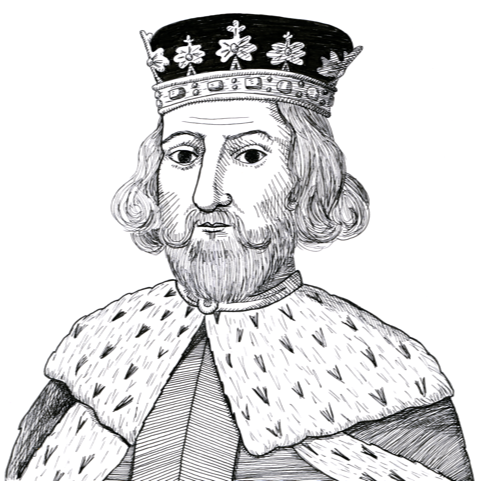
Under Magna Carta the King cannot imprison a freeman without being convicted by a trial of his peers (1215)
Found in: Magna Carta: A Commentary
Under King John’s reign, Clause 39 of Magna Carta became the foundation of the idea that a freeman could not be imprisoned without first being found guilty in a trial by his peers. This later became the idea behind the principle of “trial by jury”:
Law
No freeman shall be taken or [and] imprisoned or disseised or exiled or in any way destroyed, nor will we go upon him nor send upon him, except by the lawful judgment of his peers or [and] by the law of the land.